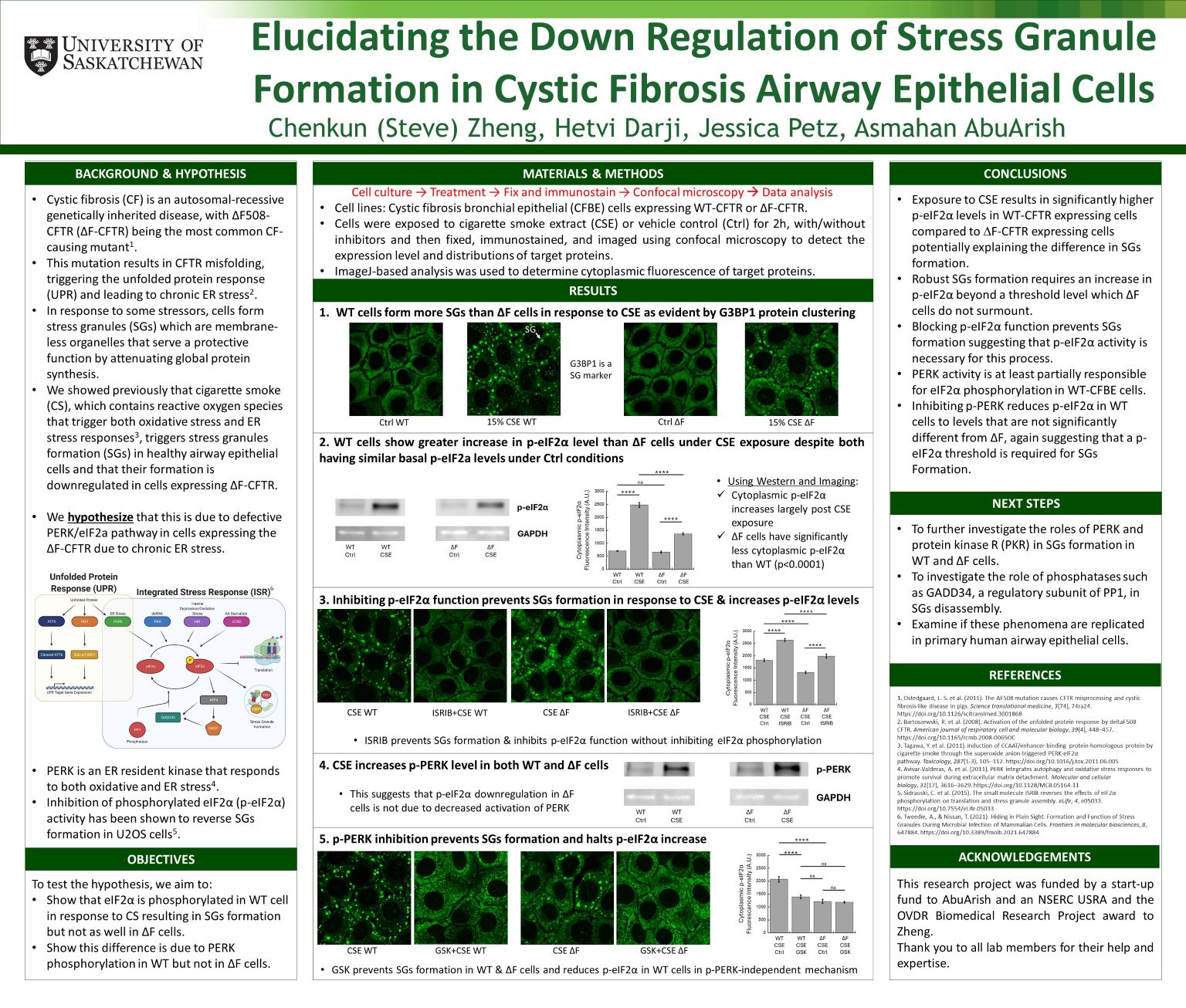
Elucidating the downregulation of stress granules formation in cystic fibrosis airway epithelial cells
Chenkun (Steve) Zheng
Cystic fibrosis (CF) is a genetically inherited hyperinflammatory pulmonary disease resulting from a mutation in the gene encoding the cystic fibrosis transmembrane conductance regulator (CFTR) channel. ΔF508 (ΔF) is the most common CF-causing mutation where a single phenylalanine deletion results in a misfolded CFTR protein, unable to perform its channel function. ΔF-CFTR is retained in the endoplasmic reticulum (ER) leading to chronic ER stress. Previous experiments in the lab have shown that cells expressing ΔF-CFTR (ΔF-cells) form significantly fewer stress granules (SGs) than those expressing wild type (WT)-CFTR when exposed to cigarette smoke extract (CSE). We hypothesize that chronic ER stress in ΔF-cells impairs the cell’s integrated stress response (less phospho-eIF2α) leading to less SGs formation and hyperinflammation. As ΔF-cells are subject to chronic ER stress, we tested if a difference in the activation of the eIF2α pathway which responds to ER stress could help to explain the difference in SGs formation. Our results show that phospho-eIF2α levels are significantly lower in ΔF-cells in response to CSE. Furthermore, inhibiting the actions of phospho-eIF2α inhibits SGs formation in WT-cells. These findings suggest that the difference in eIF2α phosphorylation explains the different responses of WT- and ΔF-cells to CSE.
